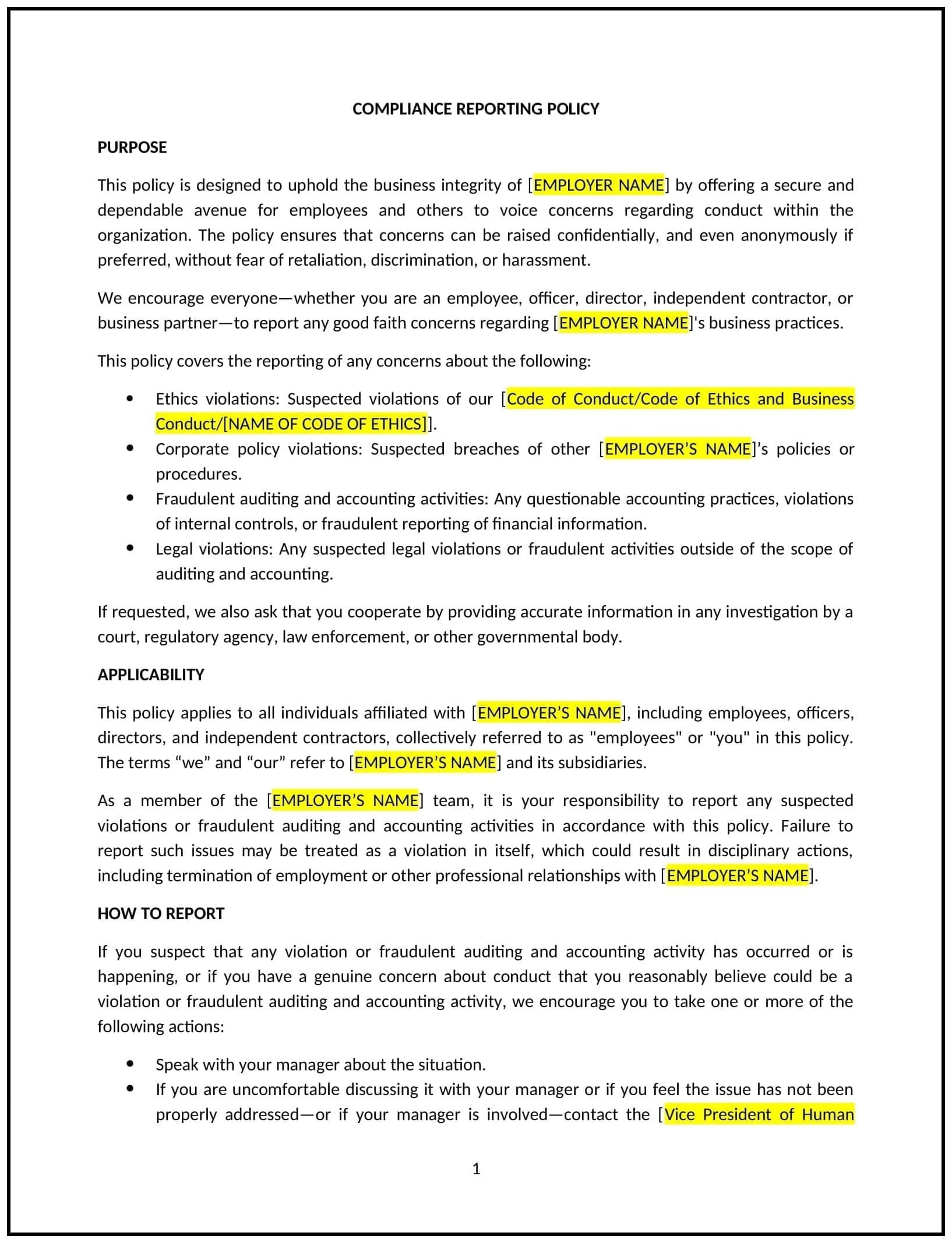Compliance reporting policy (Rhode Island): Free template
Got contracts to review? While you're here for policies, let Cobrief make contract review effortless—start your free review now.

Customize this template for free
Compliance reporting policy (Rhode Island)
This compliance reporting policy is designed to help Rhode Island businesses create a framework for employees to report potential compliance issues, such as ethical violations or regulatory concerns. It outlines procedures for submitting reports, protecting whistleblowers, and addressing reported issues.
By adopting this policy, businesses can foster a culture of transparency, address risks proactively, and align with ethical and regulatory standards.
How to use this compliance reporting policy (Rhode Island)
- Define reportable issues: Specify what types of issues employees should report, such as fraud, safety violations, or unethical behavior.
- Establish reporting channels: Provide multiple ways for employees to submit reports, such as anonymous hotlines or online forms.
- Protect whistleblowers: Include measures to safeguard employees who report issues from retaliation.
- Outline investigation procedures: Describe how reported issues will be investigated and resolved.
- Train employees: Educate staff on the importance of reporting compliance issues and how to use the reporting system.
- Review and update: Assess the policy annually to ensure it aligns with evolving business needs and legal standards.
Benefits of using this compliance reporting policy (Rhode Island)
This policy offers several advantages for Rhode Island businesses:
- Promotes transparency: Encourages employees to report potential issues without fear of retaliation.
- Reduces risks: Helps businesses identify and address compliance issues before they escalate.
- Builds trust: Demonstrates a commitment to ethical practices and accountability.
- Aligns with regulatory standards: Supports adherence to state and federal whistleblower protections.
- Enhances reputation: Shows stakeholders that the business prioritizes integrity and compliance.
Tips for using this compliance reporting policy (Rhode Island)
- Communicate the policy: Share the policy with employees and include it in the employee handbook.
- Provide training: Educate employees on how to use the reporting system and the importance of compliance.
- Monitor reports: Regularly review submitted reports to ensure timely investigation and resolution.
- Address issues promptly: Take corrective action to resolve reported issues and prevent recurrence.
- Update regularly: Assess the policy annually to ensure it aligns with evolving business needs and legal standards.